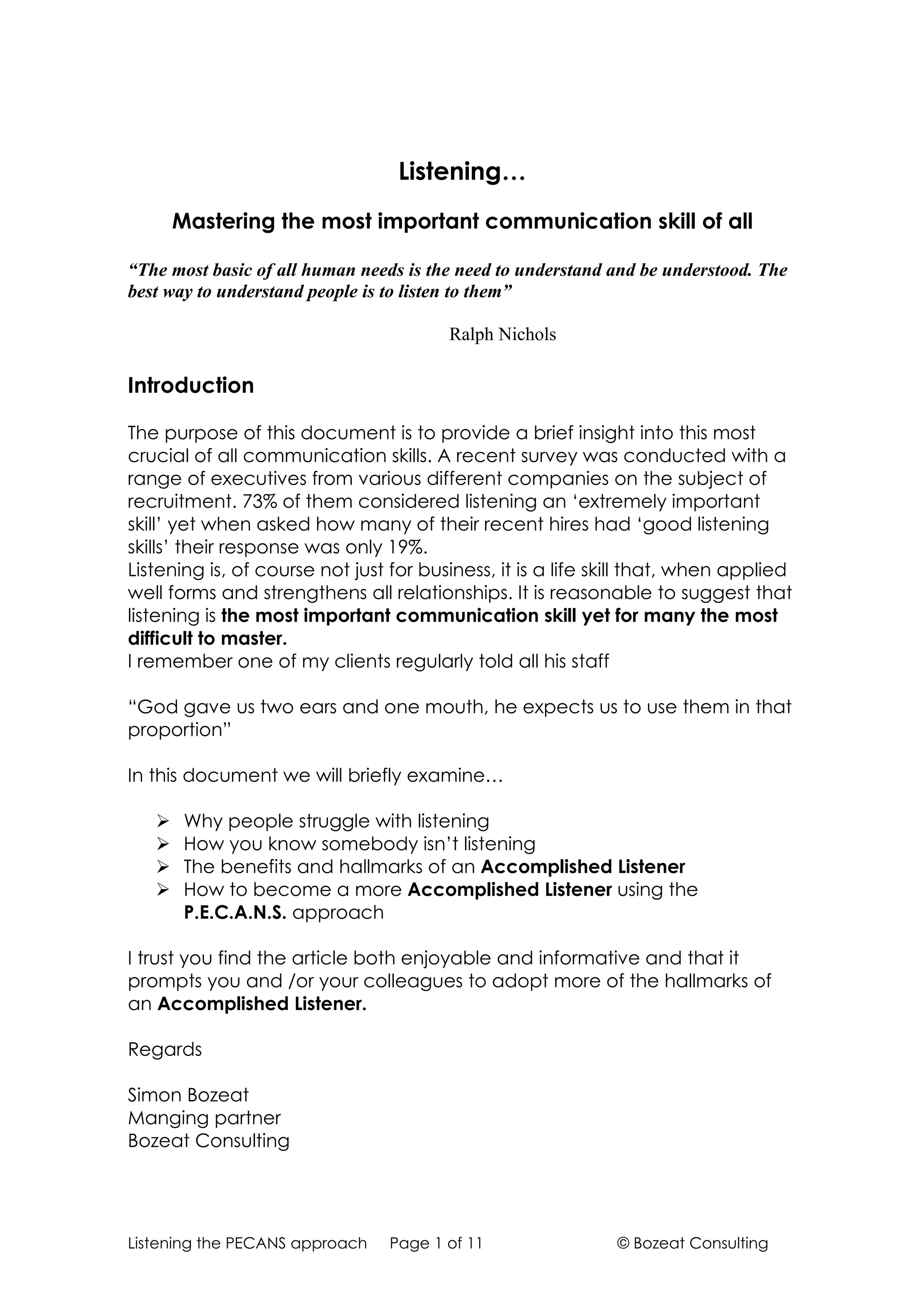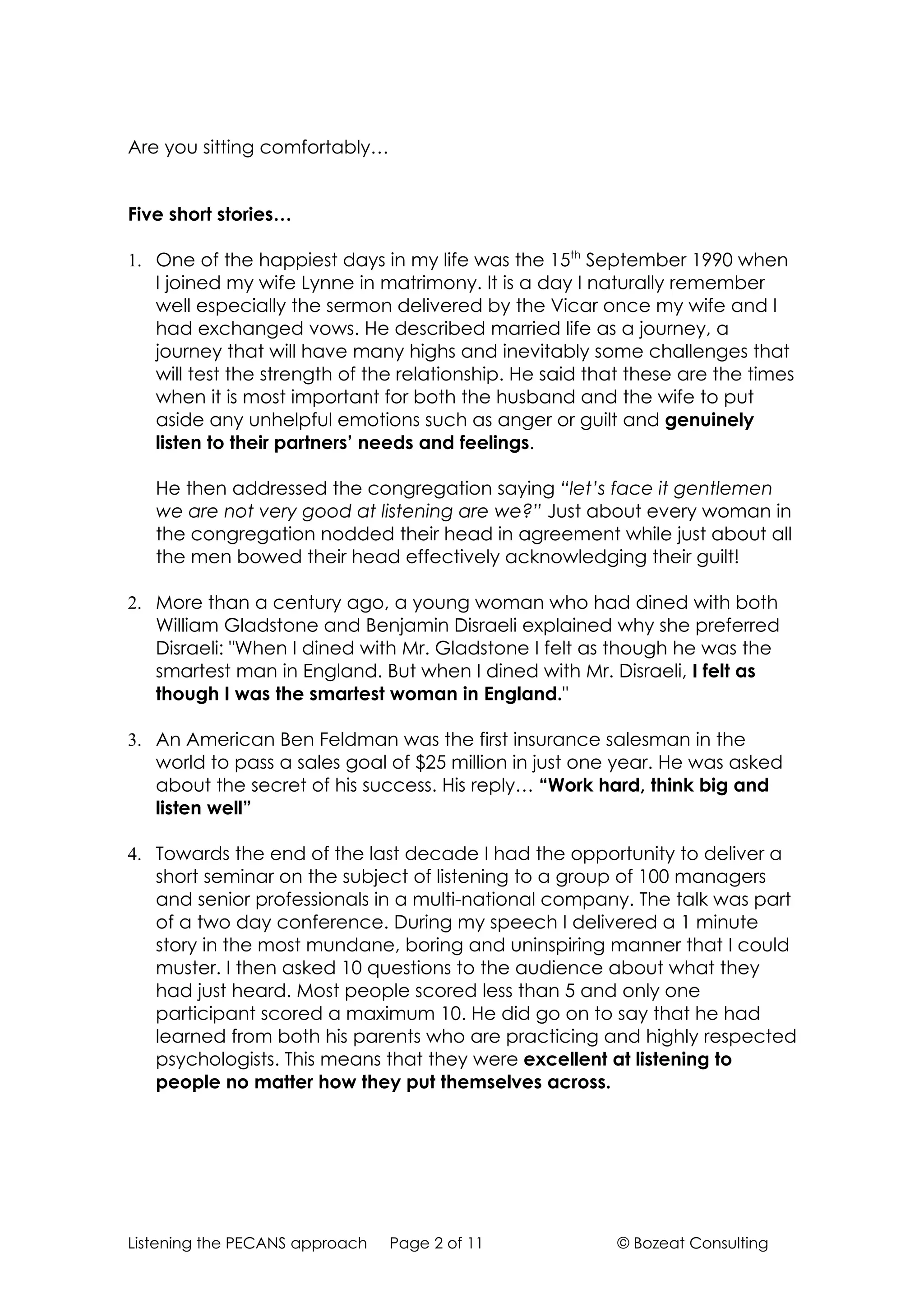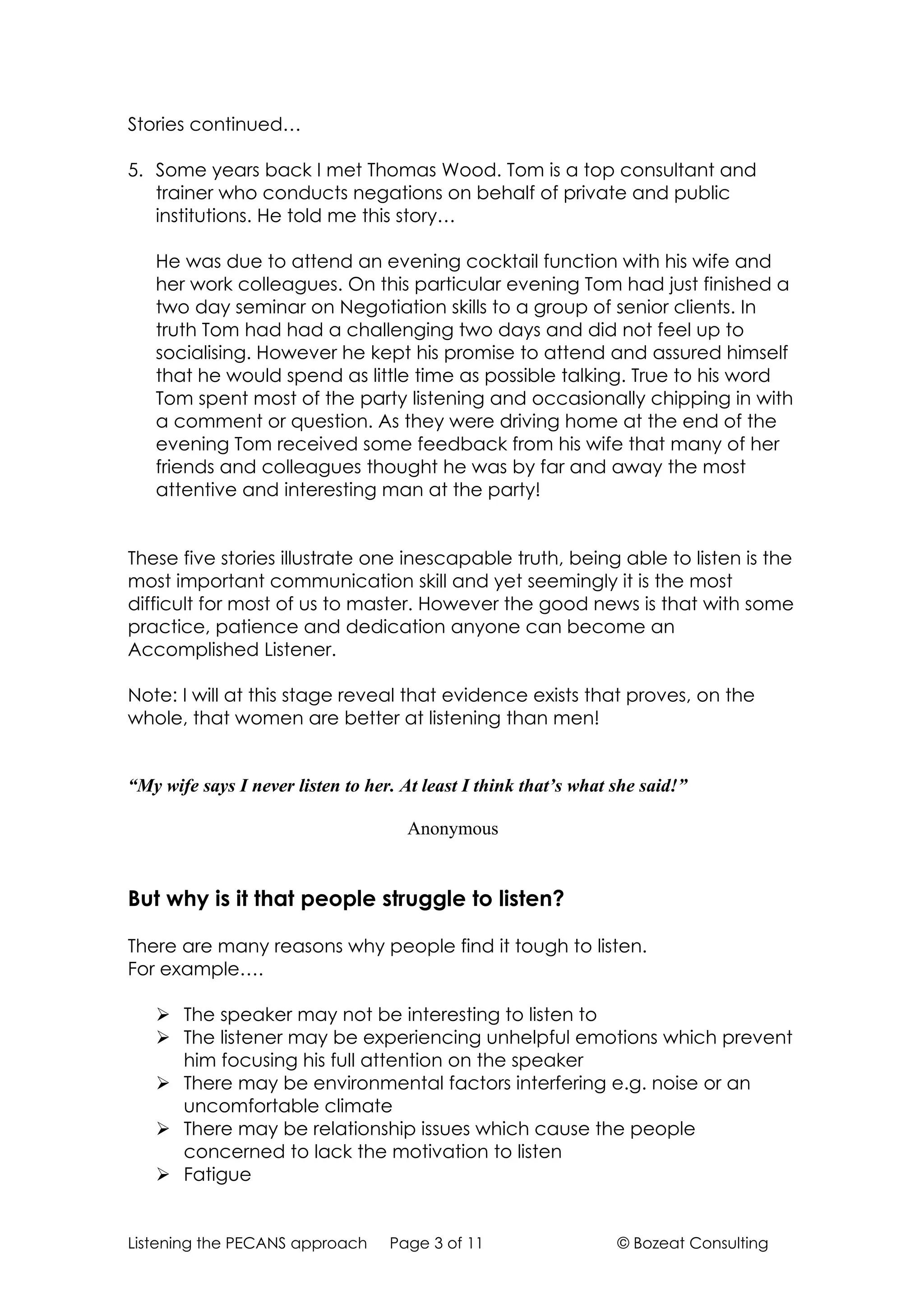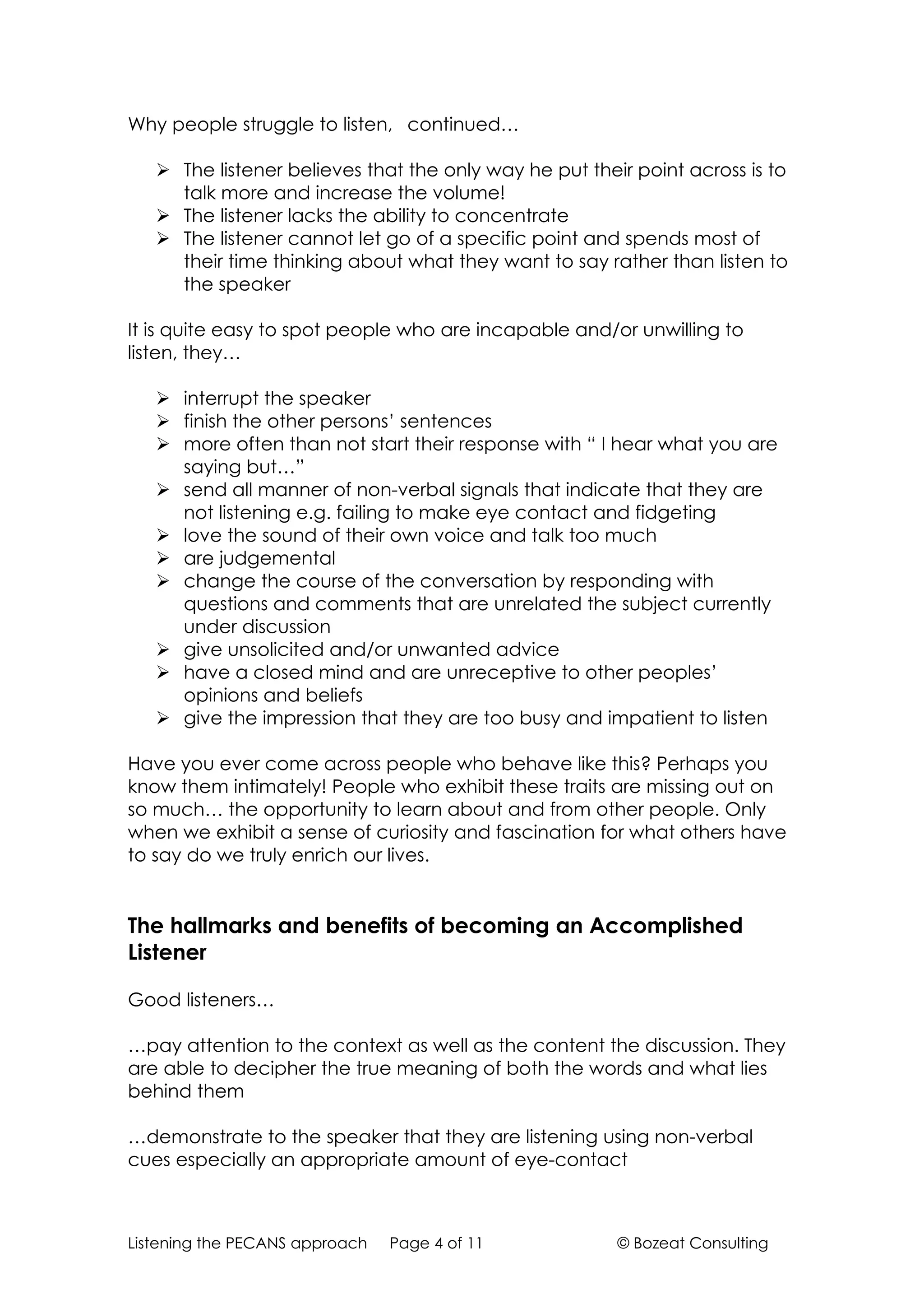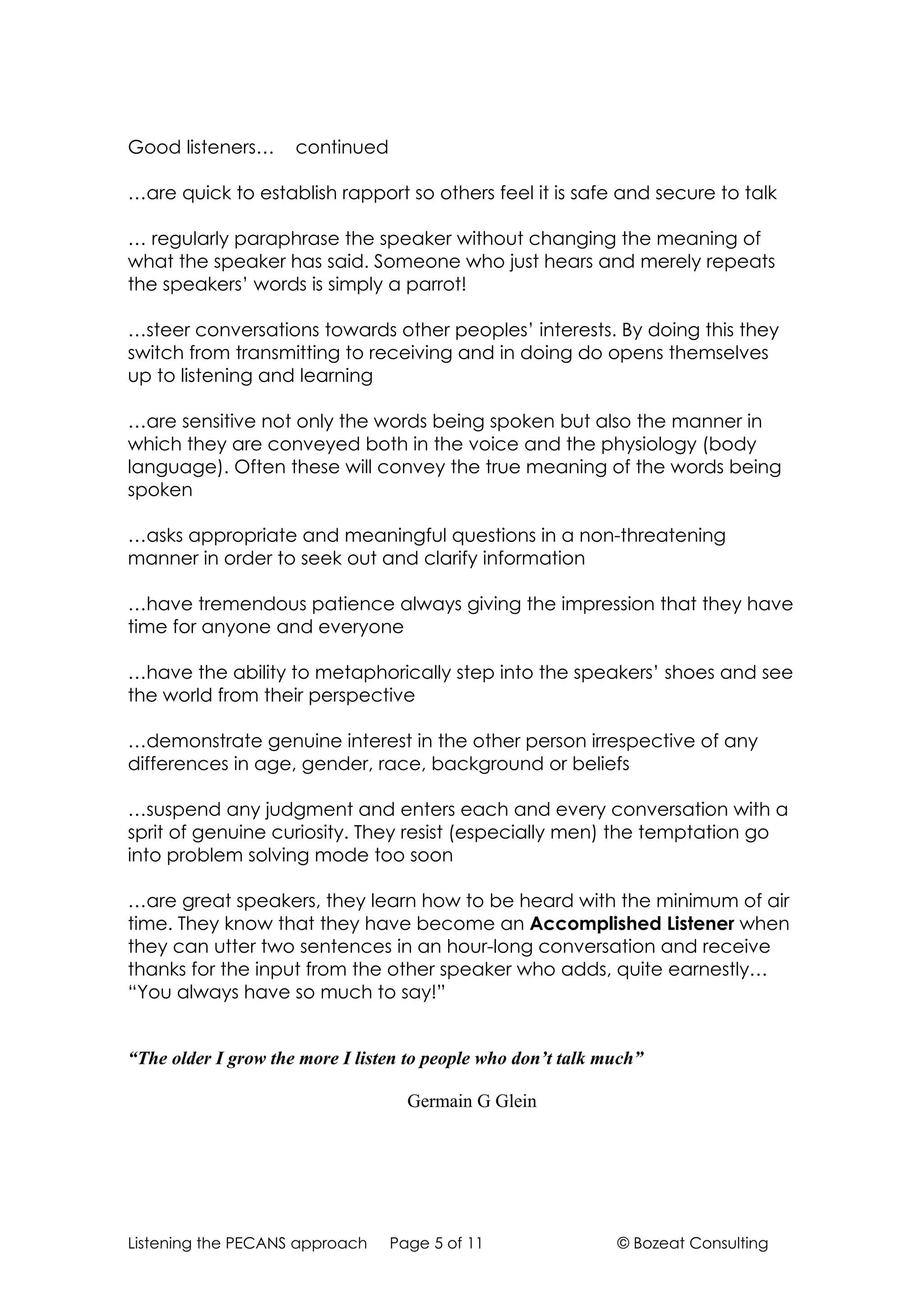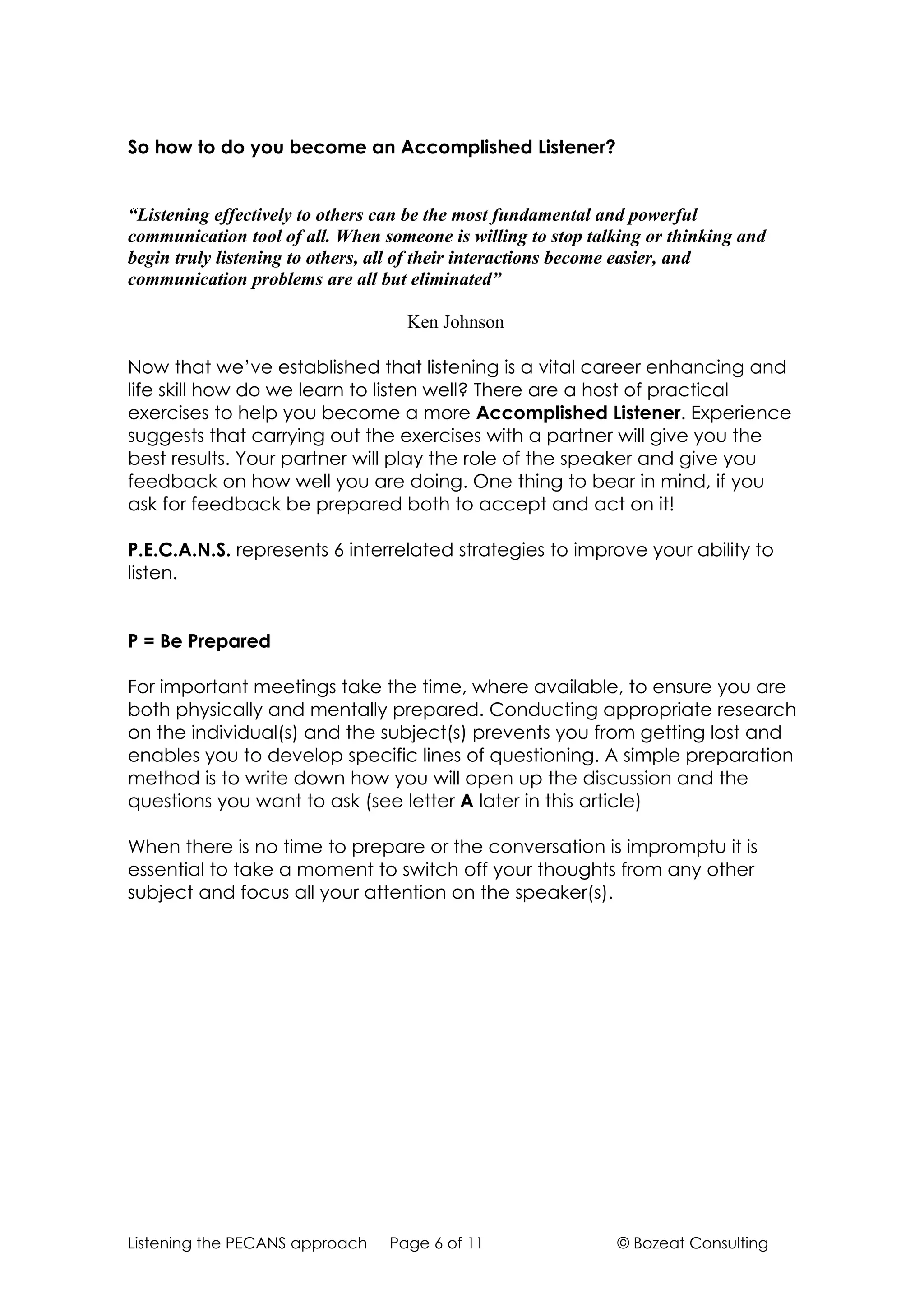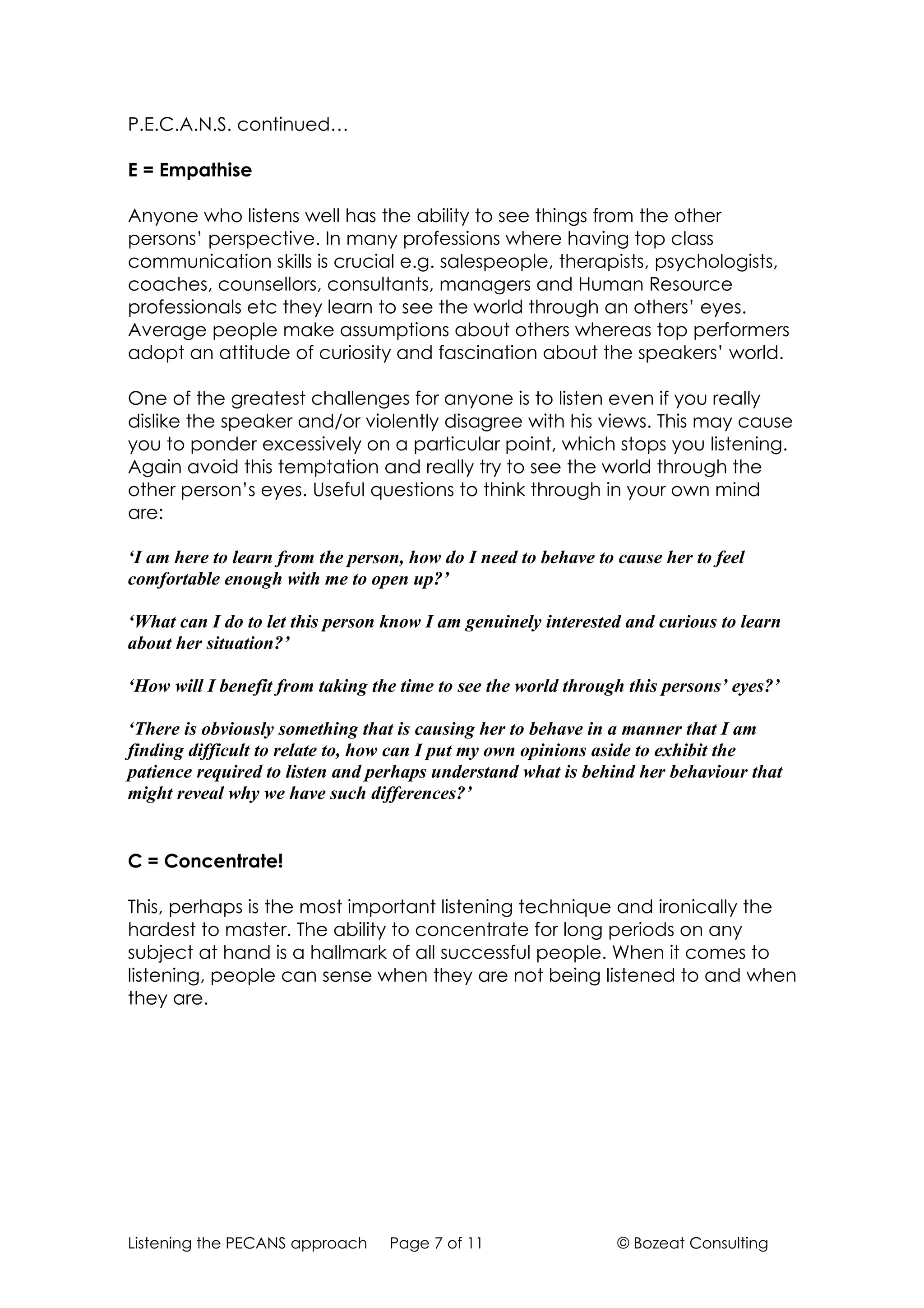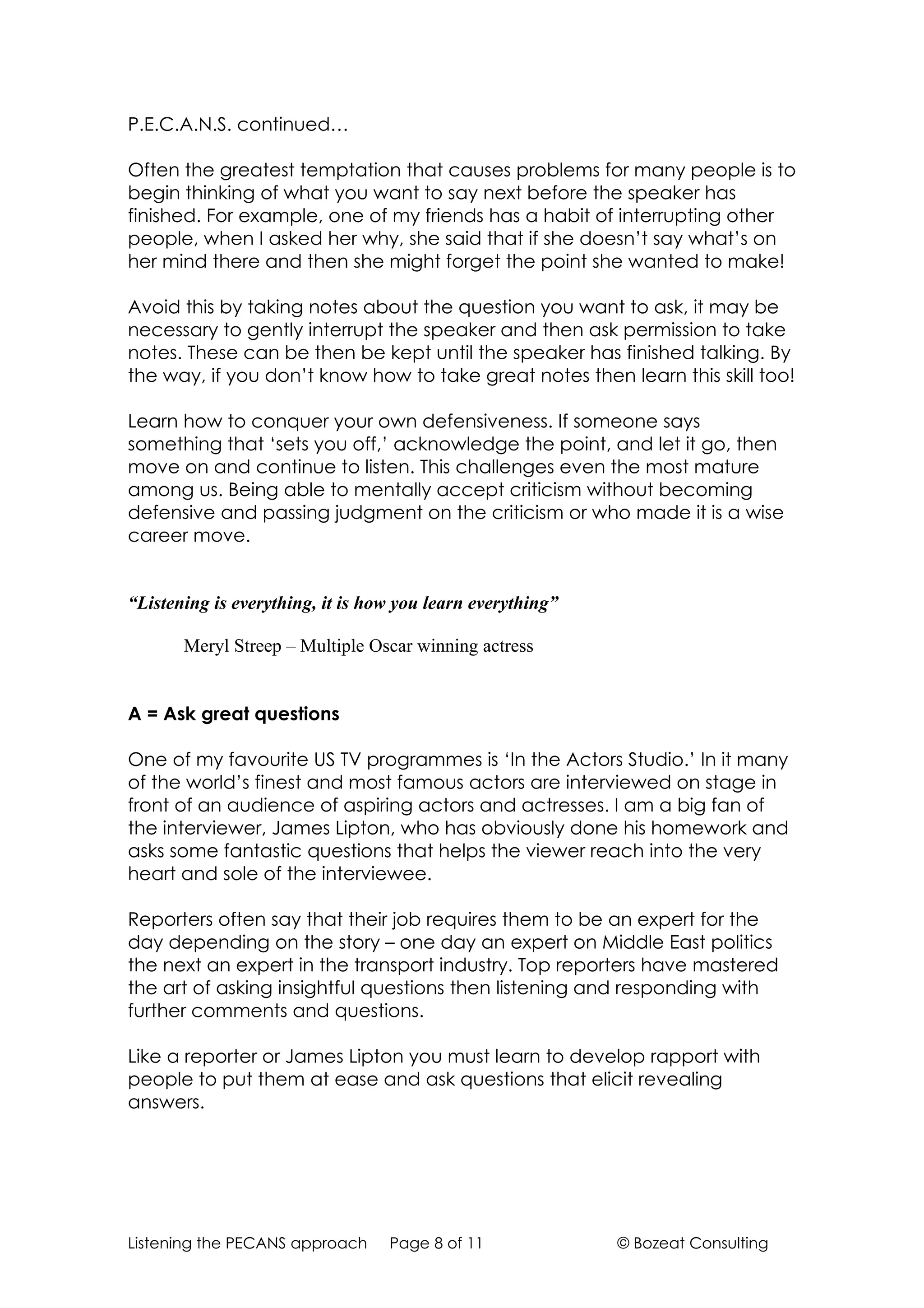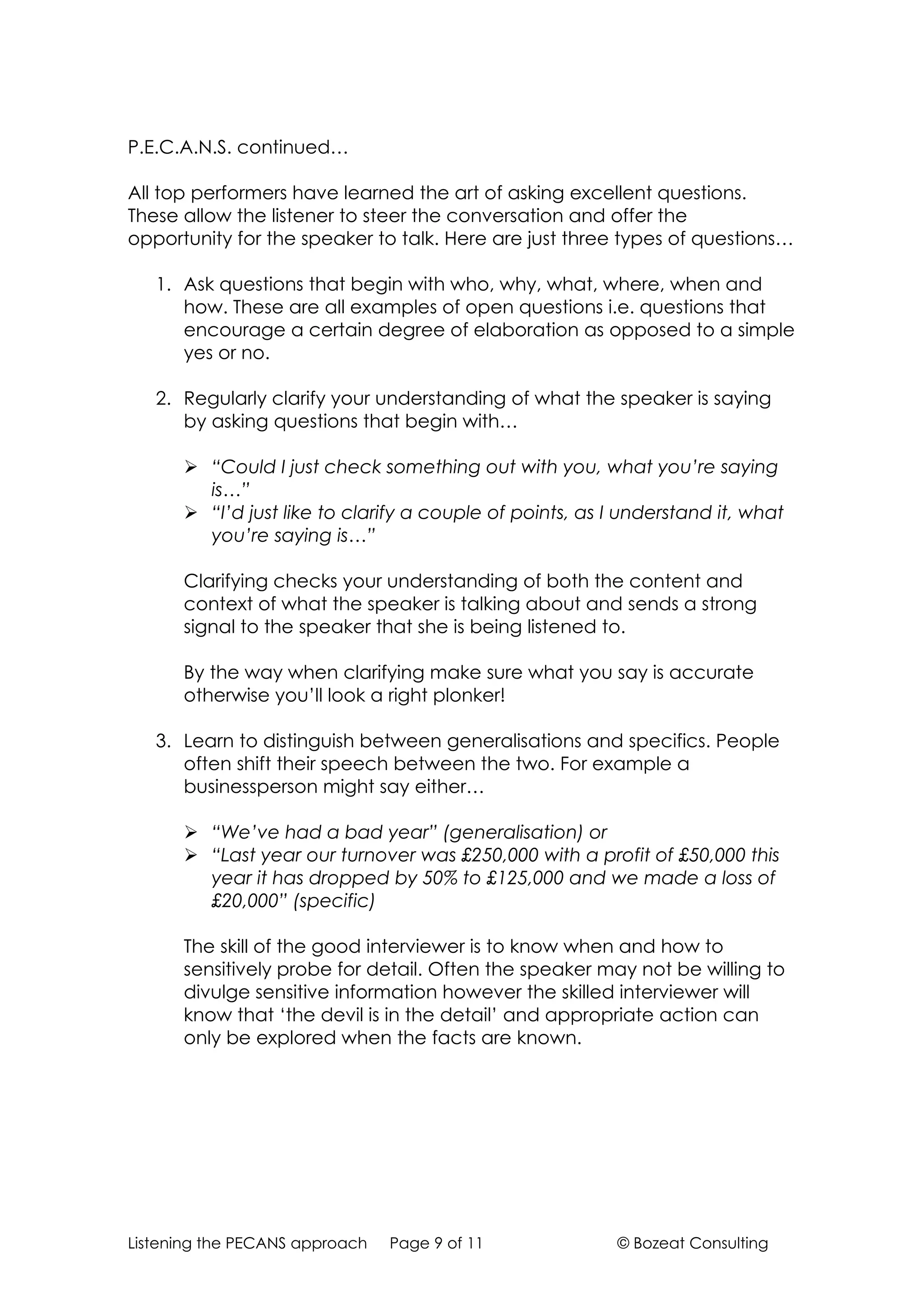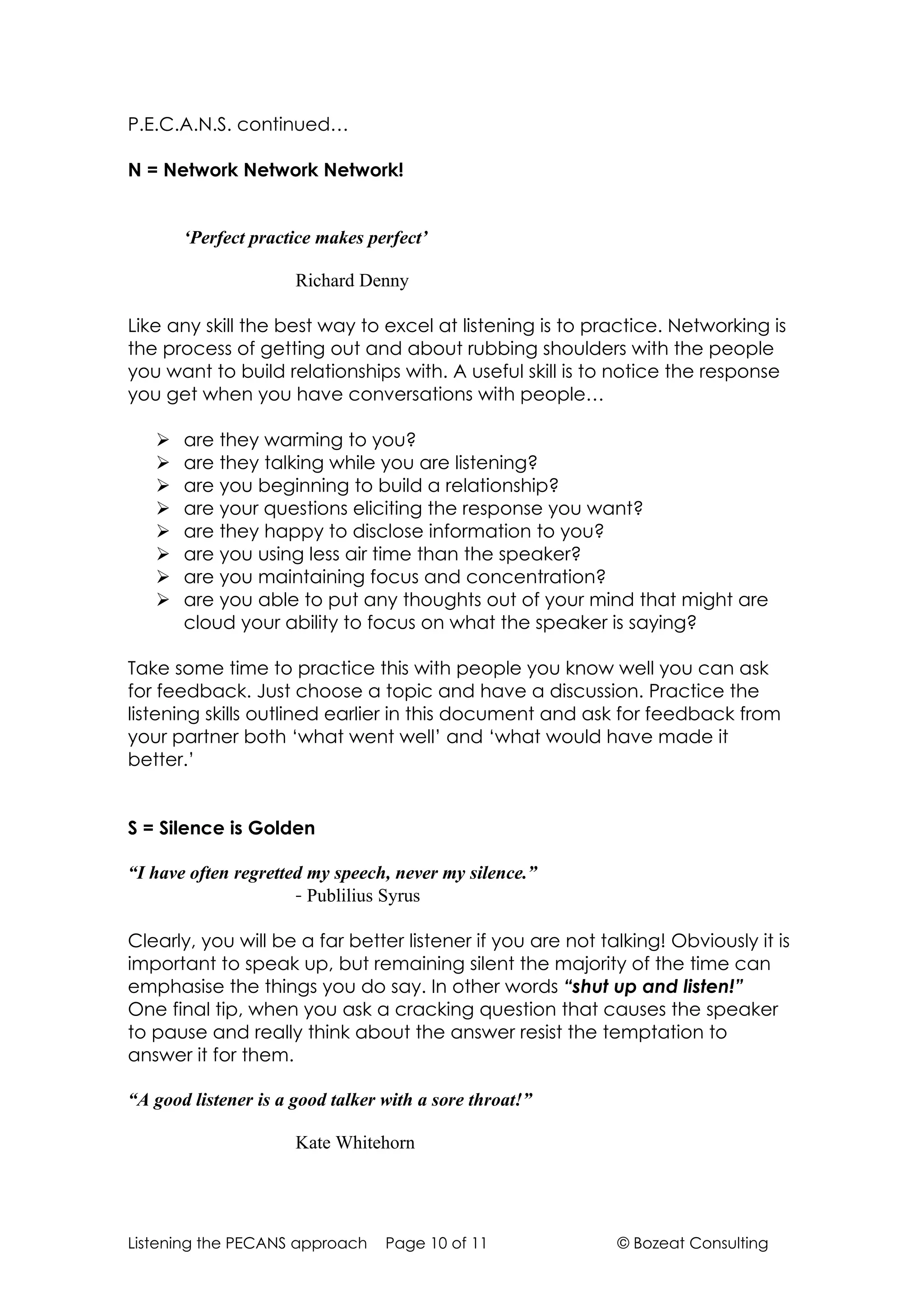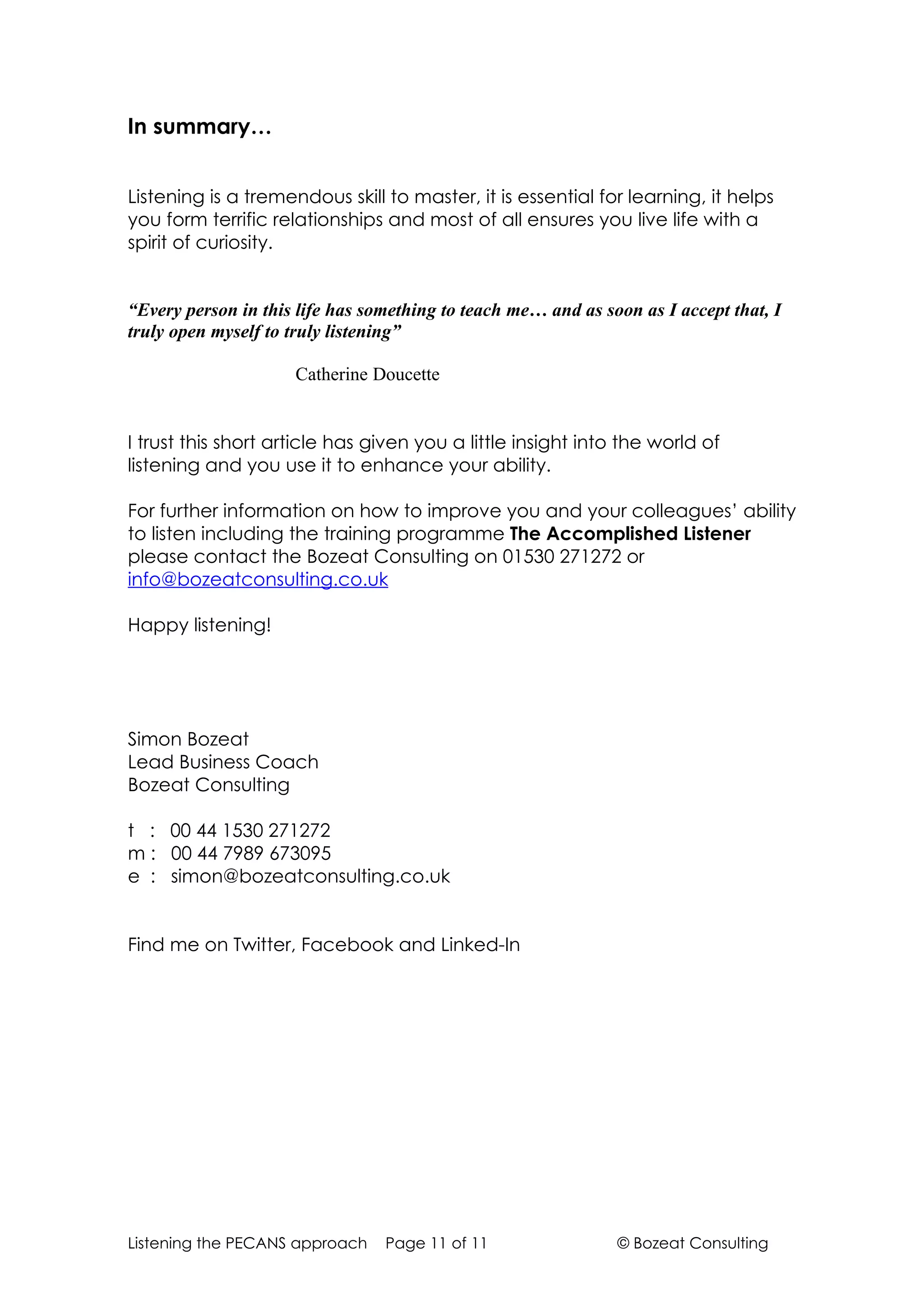This document discusses the importance of listening skills. It notes that while executives view listening as an important skill, few of their recent hires possess good listening abilities. The document then outlines reasons why people struggle with listening and identifies hallmarks of both poor and strong listeners. It proposes the PECANS method for becoming a better listener, which involves preparing, empathizing, concentrating, asking questions, and focusing on the speaker. Mastering listening is presented as an important life and career skill.
